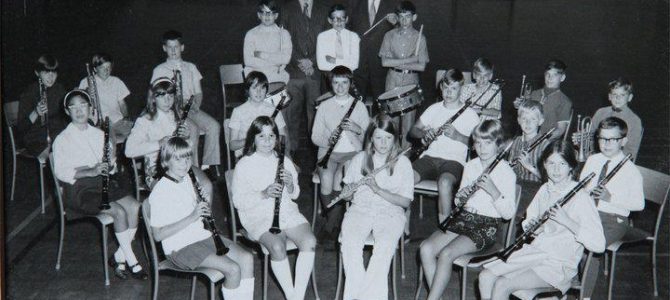Every time you hear about school districts having budget problems, the first thing they seem to cut is their music and arts programs. Now, I’m a guitar teacher and musician, so I’m biased. But why are these programs always the first to get cut? Why isn’t it football? Basketball? Home Economics? Typing? (Yes, I know, I’m dating myself now.)
But seriously.
I don’t think some people know how important music is. For everybody, I mean. Not only is it great for you to learn an instrument at any age, but it does amazing things to your brain, even if you can’t play brilliantly! A lot of people consider playing chess or doing sudoku puzzles as a great brain exercise, but playing an instrument is actually a full brain work out.
I’ve seen it in action. Sometimes it takes all of a person’s focus and energy to learn a new piece. They are in the zone, and the rest of the world, all of their problems, are on the other side of the closed studio door. Sometimes they are in shock when they realize the lesson is over.
Being able to play an instrument stays with you all of your life, regardless of your mental capacity. There are countless stories of people with dementia, unable to remember what they had for breakfast, but well able to play the piano or the flute as beautifully as they did when they were younger.
According to classicfm.com in their article explaining why you should take up an instrument, it enhances verbal memory, spatial reasoning and literacy skills. The science says it makes you smarter. Isn’t that what we all want?
Beyond what it does for your brain, playing an instrument can relieve stress, build confidence and can even help you improve your social life. Well, maybe not the social part right now, since we’re trying to keep physically distanced.
But why would school boards or districts even consider taking all of these positives away from their students?
Maybe some of them think playing an instrument is only for musical snobs. Or the exceptionally talented. They’ve probably never paid much attention to their school bands, like the one I played clarinet in when I was in school.
We were pretty mediocre. We occasionally entered into competitions with other high school bands in the district. But as soon as the other bands would start playing, we knew where we stood. Dead last.
Mr. Parkinson, our high school band teacher, was in the British military for a long time and did his best to keep us together playing those marches he loved. The theme to Hogan’s Heroes was my favourite. We didn’t actually march when we played, yet we still managed to have two musical left feet. But that wasn’t the point.
Because what I remember the most was the feeling of being in the middle of all of that music, especially when we had those moments where we pulled it together almost perfectly. It was not only uplifting, it was transformative. We played, we laughed, we tried again.
Some of the friends I made back then I still keep in touch with to this day. In fact, I married the snare drummer.
Both of my daughters used my clarinet when they had their turn playing in the school band. They also tried the strings program, and took private lessons in other instruments.
But not all parents can afford to send their children for private lessons, which is why the music programs in schools are so important.
It isn’t about children becoming virtuosos, it’s about giving them the chance to have a really positive experience. It’s about taking them away from their electronics for just a little while and doing something that they may very well remember for the rest of their lives. If music is not for them, that’s okay. At least they had the chance to try.
I’m hanging onto that clarinet and waiting for the day when I can pass it on to my grandkids. Let them play on!

